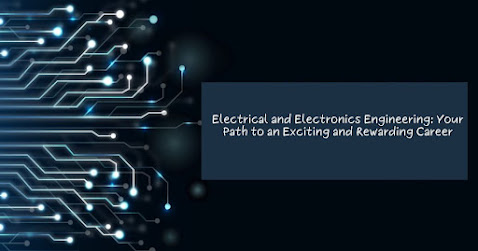B.Tech Admissions 2025: Discover Top Courses & Prepare for Success
Understanding the B.Tech Admission Process for 2025
The first step towards your B.Tech journey is understanding the B.Tech admission process. Most colleges in India conduct entrance exams such as JEE Main, JEE Advanced, or state-level exams to evaluate candidates. Each exam is designed to assess your understanding of subjects like Physics, Chemistry, and Mathematics. Therefore, it is essential to start preparing early to secure a spot in your preferred course.
It is also worth noting that several top engineering colleges may have their own specific admission procedures, including personal interviews and counselling rounds. Staying informed about the deadlines, eligibility criteria, and application processes for these exams will give you a significant advantage.
Top B.Tech Courses to Consider
With countless engineering fields to choose from, selecting the right B.Tech specialization can be overwhelming. Here’s a closer look at some of the top B.Tech courses that are in high demand for 2025:
1. B.Tech in Electronics and Communication Engineering (ECE)
The world today runs on technology, and BTech Electronics and Communication Engineering is at the heart of it. This branch covers everything from circuit design to wireless communication. If you have a knack for problem-solving and are interested in working with gadgets, communication systems, and networking technologies, ECE is a great option.
BTech Electronics and Communication Engineering syllabus includes topics like analog and digital electronics, microprocessors, telecommunications, and VLSI design. Students in this course gain a deep understanding of how electronic devices work and how they can be applied in real-world communication systems.
With the rise of IoT (Internet of Things), 5G, and artificial intelligence, the demand for ECE graduates is only expected to grow. The career prospects are vast, and opportunities range from telecom companies to multinational electronics firms.
2. B.Tech in Electrical and Electronics Engineering (EEE)
For those who are passionate about electrical systems and want to make a difference in the energy sector, B.Tech in Electrical and Electronics Engineering is an ideal choice. This course delves into both electrical power systems and electronic devices, making it a multidisciplinary field.
The electrical and electronics engineering scope is incredibly wide. Graduates can explore careers in power generation, renewable energy, robotics, automation, and even space exploration. With global emphasis on sustainable energy solutions and automation, the future for EEE graduates is bright.
The course syllabus typically covers power systems, control systems, circuits, and electrical machines, among other critical subjects. With the growing demand for renewable energy, an understanding of sustainable energy sources will also be highly beneficial for students of EEE.
3. B.Tech in Computer Science Engineering (CSE)
In today's digital age, B.Tech in Computer Science Engineering (CSE) remains one of the most popular and lucrative choices. Whether you’re interested in software development, artificial intelligence, cybersecurity, or data analytics, CSE opens the door to countless opportunities.
The syllabus includes topics such as algorithms, programming languages, database management, and artificial intelligence. CSE graduates find job opportunities in the tech industry, including top global companies like Google, Microsoft, and Amazon.
4. B.Tech in Mechanical Engineering
Another popular engineering stream is Mechanical Engineering, which blends creativity, physics, and mathematics. Mechanical engineers are responsible for designing, analyzing, and manufacturing mechanical systems. The B.Tech syllabus covers topics like thermodynamics, fluid mechanics, manufacturing processes, and materials science.
Mechanical engineers are in demand across various sectors, including automotive, aerospace, robotics, and manufacturing. Their skills are also valuable in energy production, where they help optimize systems for more efficient energy use.
Preparing for B.Tech Admission in 2025
To ensure you are well-prepared for B.Tech admission, here are a few key steps to follow:
1. Start Early with Entrance Exam Preparation
As mentioned earlier, most B.Tech admissions require candidates to clear competitive exams like JEE. Preparing for these exams requires a strong understanding of core subjects like Physics, Chemistry, and Mathematics. Make sure to focus on clearing your basics before advancing to complex topics.
Invest in study material, practice papers, and mock tests to improve your time management and accuracy. Many coaching institutes offer specialized programs for students aiming to crack JEE and other entrance exams.
2. Research Colleges and Specializations
While the most popular engineering branches may seem like the obvious choice, don't hesitate to explore other specializations based on your interests. Research colleges that offer your chosen stream and consider their curriculum, campus facilities, and placement records.
For example, if you are inclined towards electronics and communication, look for institutions that offer advanced labs, industry tie-ups, and opportunities for internships.
3. Focus on Personal Development
In addition to academic preparation, it’s also important to focus on personal development. Building strong problem-solving skills, creativity, and critical thinking can make a significant difference in your overall performance during the admission process and beyond.
Conclusion
The year 2025 promises exciting opportunities for students aiming to pursue a B.Tech degree. By understanding the B.Tech admission process, exploring various branches such as B.Tech in Electronics and Communication Engineering, and preparing effectively, you can set yourself up for success.
No matter which engineering branch you choose, remember that a B.Tech degree is more than just academic learning—it's about preparing yourself for a fulfilling career that makes a lasting impact. So, explore your options, study hard, and get ready for an exciting future in engineering!




Comments
Post a Comment